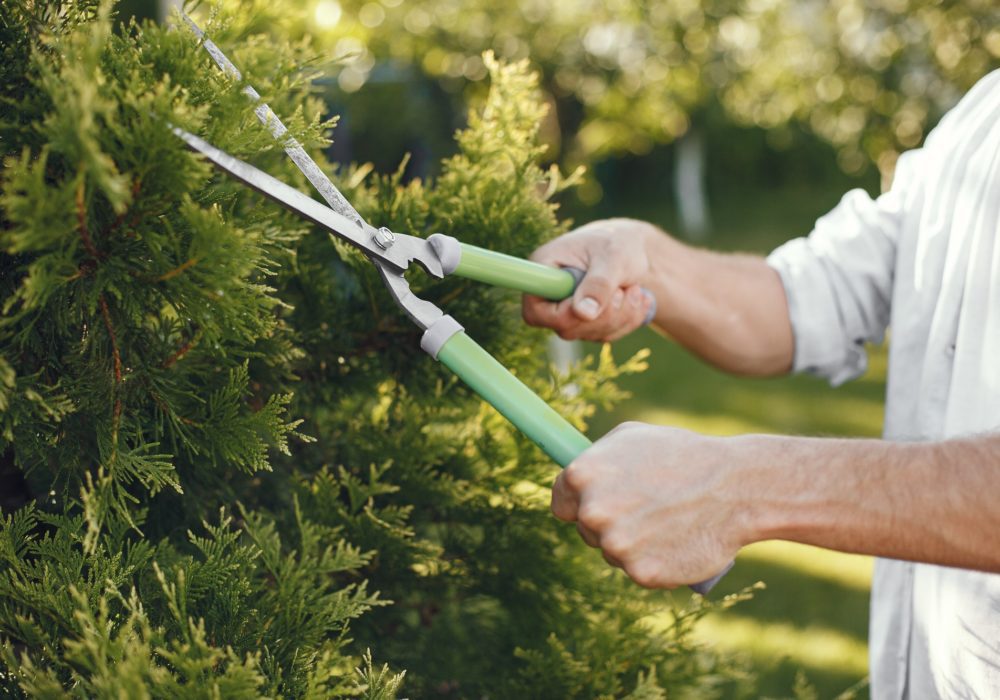
Now that summer sunshine and beautiful blooms have been replaced by colder temperatures and morning frosts, it’s time for households across the country to get their garden ready for the winter.
The work amateur gardeners put in now will keep their green space in good shape for next spring. However, this end-of-season tidy up often results in extra refuse for local authorities to dispose of alongside regular collections.
To help your council coordinate garden waste this winter, Whitespace has put together some thought starters on the type of refuse collection crews are likely to be dealing with, and how to manage it without interrupting regular kerbside collections.
A time for keen gardeners to tidy up
Winter is the ideal time for residents to complete an outdoor tidy up, as there are fewer demands on their time in terms of planting and caring for foliage. This is the season when green fingered households will dig up any annual flowers and plants that have reached the end of their season, remove patches of moss and weeds from the lawn, and rake up fallen leaves. All of which generates a large amount of waste garden material.
While some will turn this plant matter into compost, others will want their refuse collection team to deal with it. Your job as a local authority is to be clear about when and how this garden waste should be disposed of.
For example, make sure households understand:
- Cost of collection – some councils will collect plant materials for free as part of the usual rubbish round; others require residents to pay for garden waste removal. It’s important that you educate the local community on which service applies in their area, so they can make an informed decision about how to dispose of dead flowers and fallen leaves. For instance, if they don’t want to pay for annual garden waste collection, they may choose to take it to the nearest recycling centre instead.
- Time and frequency of collection – even if garden waste is included in regular refuse rounds, it may not be collected every week or fortnight like black bag rubbish. Your waste management team needs to manage expectations around regularity of collections, particularly if you’d prefer local residents to contact you in advance to arrange pick-up. Many council teams have to make ad-hoc job requests to collection crews in order to manage garden waste, and you may not have the waste management workflow technology in place to make these requests easily.
A good moment to clear out sheds and outhouses
It’s not just plant matter that gets disposed of during the end-of-season garden clearance. Many households will be winter-proofing sheds and outbuildings at the moment, and having a thorough clear out in the process.
For local authorities, this can often result in larger refuse collection rounds than normal, and an increase in bulky waste – both of which can impact regular black bag rubbish rounds. If collection crews fall behind schedule or are unable to dispose of everything left at the kerbside, it can put teams on the back foot going into Christmas, which is one of the busiest times of the year for managing waste.
Equally, residents may be confused as to how non-plant material from their garden should be disposed of. For example, plastic flowerpots can be recycled in some areas, but clay pots cannot. All too often, unwanted garden equipment is put into the wrong bin, disrupting the waste management process.
One way that councils can encourage better garden waste management is to invest in a residents’ mobile app, through which community members can check the next garden waste collection date or make a service request like bulky waste collection. This is a great mechanism for reminding people of Christmas collection times as well, to pre-emptively manage seasonal waste alongside additional outdoor refuse.
Helping the council/resident relationship to blossom
Just as a small amount of admin work in winter pays off for residents when their garden blooms again in spring, some up-front communication and back-end organisation can help local authorities deal with garden waste effectively.
Work closely with households in your area to educate them on the rules around garden waste disposal, and encourage them to alert teams to larger-than-usual collections in advance. Not only will this make waste management easier in the short-term, it will set protocol for the long-term – helping relationship between office-based waste management teams, collection crews and local residents to blossom.
Improve the way you manage garden waste and other specialist service with Whitespace Municipal Waste Management Software.
Book a free Whitespace demo to see how our technology can streamline collections and make it easier to deal with ad-hoc requests.
